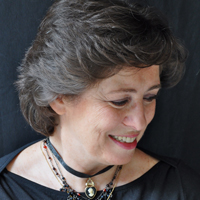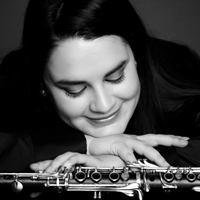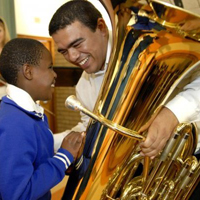Latest News Archive
Please select Category, Year, and then Month to display items
02 January 2025
|
Story Gerda-Marie van Rooyen
|
Photo Supplied
 Leading the research in South Africa is Prof Linus Franke from the Department of Soil, Crop and Climate Sciences.
Leading the research in South Africa is Prof Linus Franke from the Department of Soil, Crop and Climate Sciences.
Scientists are actively pursuing the successful breeding of diploid hybrid potatoes from inbred lines. This is expected to revolutionise potato breeding as it holds the key to rapid genetic progress. It will introduce new varieties for commercialisation through seed. Currently, existing potato variants have a gene that renders self-pollinated seeds infertile.
Prof Linus Franke, an academic in the Department of Soil, Crop and Climate Sciences at the UFS, is leading the research in South Africa. “This technology allows the production of genetically uniform potato seed that is easy to transport and largely disease-free.” He says this differs from conventional breeding whereby only vegetative propagation is possible due to tetraploid varieties in potatoes. It also risks carrying pests and diseases from one generation to the next – leading to the accumulation of pests and diseases with each round of multiplication.
Seed innovation
Prof Franke explains that Solynta BV, a seed company based in the Netherlands that produces potato varieties that can be grown from seed, has included South Africa in their research efforts because it is one of Africa’s largest producers and exporters. Through his academic relationship with Wageningen University and Research, a Dutch institution renowned for its agricultural endeavours and food production, the UFS became involved in researching hybrid potatoes grown from seed.
Diploid seeds containing two sets of chromosomes allow easier gene manipulation to increase predictability and speedier genetic progress. The breeding approach enables the incorporation of tolerance to pests, diseases, abiotic stresses (cold, heat, drought) and other desired genetic traits.
Although Prof Franke is optimistic about this research, he is not blind to disadvantages. “Potato seeds are tiny and have little energy reserves, making it harder to grow potatoes from seed than from tubers.” He says potatoes from seed will take longer to cultivate than tubers, as farmers need to grow plantlets from seeds first, adding six weeks to the growing period. “It is possible that commercial farmers can grow potatoes directly from seed. Alternatively, perhaps more likely, specialised growers will produce tubers of potatoes from seed; these tubers are then sold as seed tubers to other potato farmers, who then continue their normal practices of producing potatoes for the market from tubers.”
Financial benefits
Prof Franke says farmers have reason to get excited. “Seed potatoes will reduce input costs, as varieties with enhanced tolerance to pests and diseases require less pesticides. Planting one hectare of potatoes requires three to four tonnes of potato tubers, but only one 25 g packet of potato seeds.” Since potatoes are a more valuable commodity than maize, this technology might also increase farmers’ income potential.
Maestros from the world stage now lecture at the Odeion School of Music
2014-02-19
|

Prof Ruth Goveia |

Danré Strydom |

George Foster |
The Odeion School of Music (OSM) at the University of the Free State (UFS) recently endorsed its commitment to excellence with the appointment of three exceptional performing artists and lecturers.
Prof Ruth Goveia (piano), Danré Strydom (clarinet and saxophone) and George Foster (brass instruments) all hold international qualifications. In addition, all of them have received tutelage from world-renowned mentors and performed across the globe. Their respective CVs are awe-inspiring – to say the least.
Prof Goveia has been appointed as an associate professor at our university. She obtained her doctorate in Music in Piano from the Jacobs School of Music at the Indiana University, USA, after completing her master’s degree at the University of Cincinnati. Prof Goveia has gained immeasurable experience while holding positions at several prestigious institutions, including the Albion College in Michigan and the Indiana University.
As a soloist, Prof Goveia’s performances are staggering. She has appeared in a number of recitals across America and even performed as a guest artist at the Kalamazoo College of Music. She took part in the Chamber Music Project of the New York-based Artur Balsam Foundation, and collaborated with clarinetist Randall Paul on a duo tour of Georgia and Alabama.
Danré Strydom has been appointed as a junior lecturer in clarinet and saxophone. She will also co-ordinate the woodwind programme at the OSM. Her training began in Windhoek, Namibia, and continued on to the prestigious Jacobs School of Music in Indiana, USA. From there she joined the Ghent Conservatoire in Belgium, reading for two master’s degrees – completing both cum laude. Strydom has performed with several renowned orchestras ranging from the Vlaams Brabant Symphony (Belgium) to the Sinfonietta Breda (Netherlands).
George Foster is filling the position of a junior lecturer in brass instruments. He completed his BMus degree at the South African College of Music at the University of Cape Town where he received the Anton Rupert Merit prize. As former Fulbright scholar, Foster read for a master’s degree in Music at the University of North Texas. During his study period in the USA he was a member of the University of North Texas Wind Band, the Symphony Orchestra and the Chamber Orchestra. Here, he gained invaluable experience as a conductor as well.
Strydom and Foster are performing their duties at the Free State Symphony Orchestra (FSSO), as well as the OSM. They will both play an integral role as musicians and collaborators within the activities and initiatives of the FSSO, and serve as coaches and instructors for the Free State Youth Orchestra.